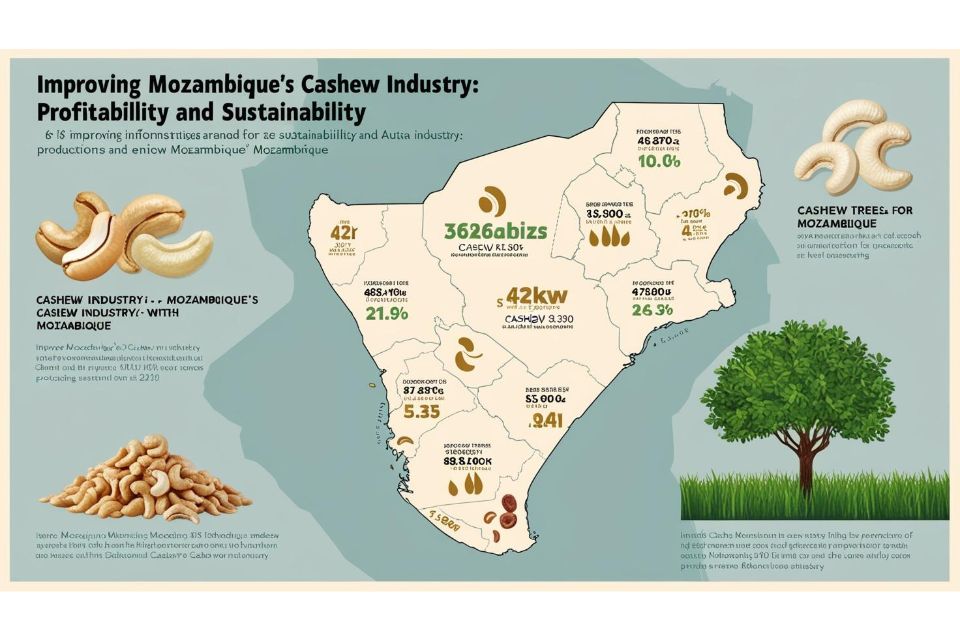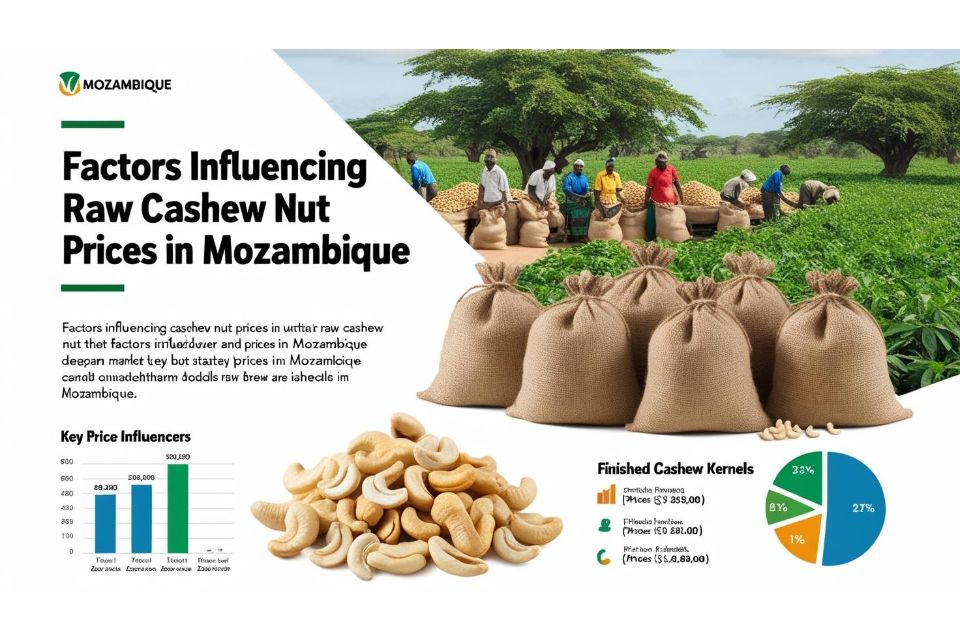What factors influence Mozambique’s cashew competitiveness globally?
The cashew processing sector in Mozambique presents a complex landscape of challenges and opportunities that shape its competitiveness in the global market. Unlike major competitors like Vietnam, India, and Ivory Coast, Mozambique’s cashew industry navigates a nuanced path of strategic advantages and significant obstacles.
Competitive Advantages
- Raw Cashew Nut (RCN) Procurement
Mozambique enjoys a unique advantage in raw cashew nut pricing. The government has implemented a strategic export tax on RCN, which serves two critical purposes. First, it protects local processing factories by making it less attractive to export unprocessed nuts. Second, it creates a buffer against competition from Asian processors, ensuring that local factories have access to raw materials at more favorable prices. - Labor and Land Costs
The country benefits from relatively low-cost economic inputs. Minimum wages in Mozambique are substantially lower than in competing countries like Vietnam and most Indian cashew processing states. Additionally, land acquisition costs are more affordable, providing a foundational cost advantage for potential investors in the cashew processing sector.
Significant Challenges
- Operational Constraints
Mozambican cashew processors face multiple operational challenges that undermine their global competitiveness:
- Higher taxation compared to competitor countries
- Absence of meaningful government subsidies
- Expensive imported equipment and spare parts
- Higher wages for skilled technical personnel
- Lower processing yields due to limited mechanization and technical expertise
- Market and Financial Limitations
The industry struggles with several market-related constraints:
- Limited income from by-product sales
- Short procurement periods (only three months annually)
- Difficulty accessing bank financing
- Lower market prices for processed cashew kernels
- Challenges in obtaining optimal kernel quality and quantity
Systemic Business Environment
The broader business ecosystem in Mozambique further complicates the cashew processing landscape. The country ranks 135th out of 190 countries in the World Bank’s Doing Business report, indicating significant bureaucratic and regulatory challenges. Infrastructure issues like unreliable electricity supply—necessitating expensive generator use—and high port transit costs add additional layers of complexity.
Strategic Implications
While the RCN export tax provides some protection, it is not a comprehensive solution to the industry’s sustainability challenges. The Mozambican cashew processing sector requires a multifaceted approach involving:
- Technology transfer and skills development
- Strategic government support
- Investment in processing infrastructure
- Exploration of more diverse market opportunities
- Development of value-added processing capabilities
Comparative Perspective
Compared to Asian competitors, Mozambique’s cashew processing industry remains relatively nascent. Countries like India and Vietnam have developed sophisticated ecosystems supporting cashew production, processing, and marketing. These nations offer robust government incentives, have more developed technical expertise, and benefit from larger domestic markets.
Future Outlook
The sustainability of Mozambique’s cashew processing industry hinges on its ability to address structural challenges. This will require coordinated efforts from government, private sector investors, and international development partners to create a more competitive and resilient industry.
By strategically investing in technology, skills, and market development, Mozambique has the potential to transform its cashew processing sector from a vulnerable industry to a significant economic contributor.


